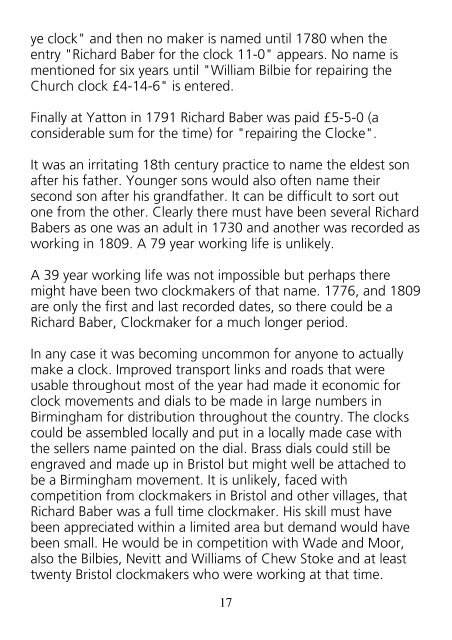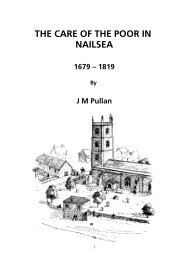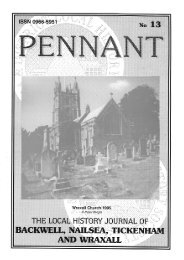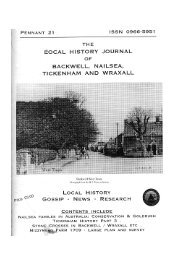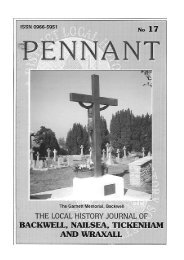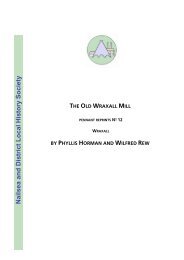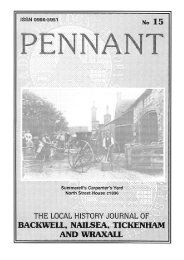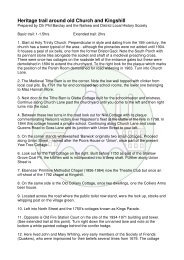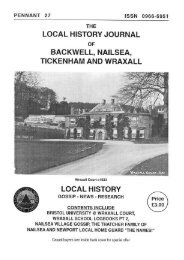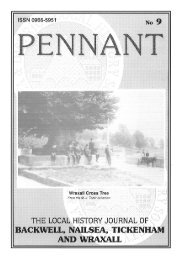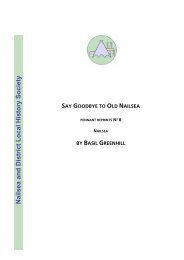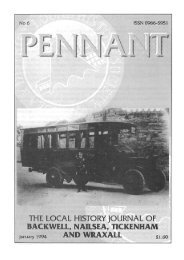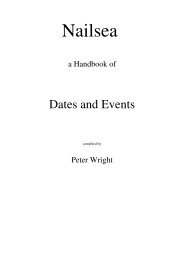No 2 - Nailsea and District Local History Society
No 2 - Nailsea and District Local History Society
No 2 - Nailsea and District Local History Society
Create successful ePaper yourself
Turn your PDF publications into a flip-book with our unique Google optimized e-Paper software.
ye clock" <strong>and</strong> then no maker is named until 1780 when theentry "Richard Baber for the clock 11-0" appears. <strong>No</strong> name ismentioned for six years until "William Bilbie for repairing theChurch clock £4-14-6" is entered.Finally at Yatton in 1791 Richard Baber was paid £5-5-0 (aconsiderable sum for the time) for "repairing the Clocke".It was an irritating 18th century practice to name the eldest sonafter his father. Younger sons would also often name theirsecond son after his gr<strong>and</strong>father. It can be difficult to sort outone from the other. Clearly there must have been several RichardBabers as one was an adult in 1730 <strong>and</strong> another was recorded asworking in 1809. A 79 year working life is unlikely.A 39 year working life was not impossible but perhaps theremight have been two clockmakers of that name. 1776, <strong>and</strong> 1809are only the first <strong>and</strong> last recorded dates, so there could be aRichard Baber, Clockmaker for a much longer period.In any case it was becoming uncommon for anyone to actuallymake a clock. Improved transport links <strong>and</strong> roads that wereusable throughout most of the year had made it economic forclock movements <strong>and</strong> dials to be made in large numbers inBirmingham for distribution throughout the country. The clockscould be assembled locally <strong>and</strong> put in a locally made case withthe sellers name painted on the dial. Brass dials could still beengraved <strong>and</strong> made up in Bristol but might well be attached tobe a Birmingham movement. It is unlikely, faced withcompetition from clockmakers in Bristol <strong>and</strong> other villages, thatRichard Baber was a full time clockmaker. His skill must havebeen appreciated within a limited area but dem<strong>and</strong> would havebeen small. He would be in competition with Wade <strong>and</strong> Moor,also the Bilbies, Nevitt <strong>and</strong> Williams of Chew Stoke <strong>and</strong> at leasttwenty Bristol clockmakers who were working at that time.17


